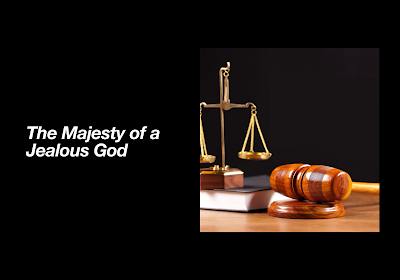When Justice Applies to Everyone
In April 2013, a Michigan judge handed down one of the most unusual rulings of his career—against himself. Judge Raymond Voet had a posted policy in his courtroom: if a phone went off during proceedings, its owner would be fined $25.
During a prosecutor’s closing argument, Voet’s own smartphone started talking—loudly—asking for voice commands. Embarrassed, the judge silenced it as quickly as he could. But at the next recess, he fined himself $25. “Judges are human,” he said. “We’re not above the rules.”
That’s what real justice looks like—applied fairly, without favoritism, even to the one in charge.
Nahum 3 shows us the same truth about God. No matter how powerful Nineveh was, no matter how untouchable Assyria thought itself to be, God did not overlook their evil. His justice is perfect, consistent, and unavoidable.
Nahum describes Nineveh as a “city of blood,” built on violence, lies, and plunder. Ancient accounts tell of unspeakable cruelty—captives tortured, treaties betrayed, wealth stolen. Assyria’s power grew through deceit and terror, not justice and peace.
God’s verdict? Enough.
Nineveh would be exposed for what it truly was. Once feared, it would now be shamed. The empire that humiliated others would be humiliated itself.
And God reminds Nineveh of history: Thebes, a mighty Egyptian city Assyria once conquered, had seemed invincible too. But it fell. And so would Nineveh. What they had done to others would now return upon their own heads.
The Collapse of False Power
Nahum uses vivid images:
Nineveh like ripe figs, falling at the slightest shake.
Its soldiers like locusts, swarming in greed but disappearing when danger comes.
Its leaders like sleeping shepherds, abandoning the flock.
The message is clear: the empire’s wealth, armies, and defenses would not save it. The wound would be fatal. And while Assyria’s victims had once wept in terror, now they would rejoice at its downfall.
Where We Fit In
What do we do with a text this heavy?
First, it reminds us that God deals with His enemies in two ways. In Jonah’s day, Nineveh repented—and God relented. But when repentance faded, judgment came. The same is true for us: we must continually turn our hearts back to God, pledging our allegiance to Jesus, or else we risk sharing Nineveh’s fate.
Second, Nahum points us to Christ. On the cross, Jesus absorbed the violence, humiliation, and exposure that sin produces. The taunts, the filth hurled at Him, the shame of being stripped bare—it’s the fate Nineveh faced, and the fate humanity deserves. But Jesus bore it in our place. He took on our judgment so that we could receive God’s mercy.
Without Him, Nineveh’s fate becomes our fate. With Him, we are delivered.
The Final Verdict and Future Hope
Nahum 3 is more than history—it’s a preview of God’s ultimate justice.
For the oppressed: comfort—God will set things right.
For the oppressor: warning—repent before judgment comes.
For God’s people: hope—the downfall of evil is certain, and the reign of God is forever.
We live in that tension. We long for God’s justice now, but we hope in His final verdict. And as we wait, we worship, because in Jesus the victory has already been secured.
A Challenge for the Week
Take time this week to worship God for the hope we have in Christ. Thank Him that His justice is real, His timing is perfect, and His mercy is available now.
When life feels unfair, chaotic, or overwhelming, remember: God’s justice brings down the oppressor and delivers His people. Our future is secure in Jesus.








